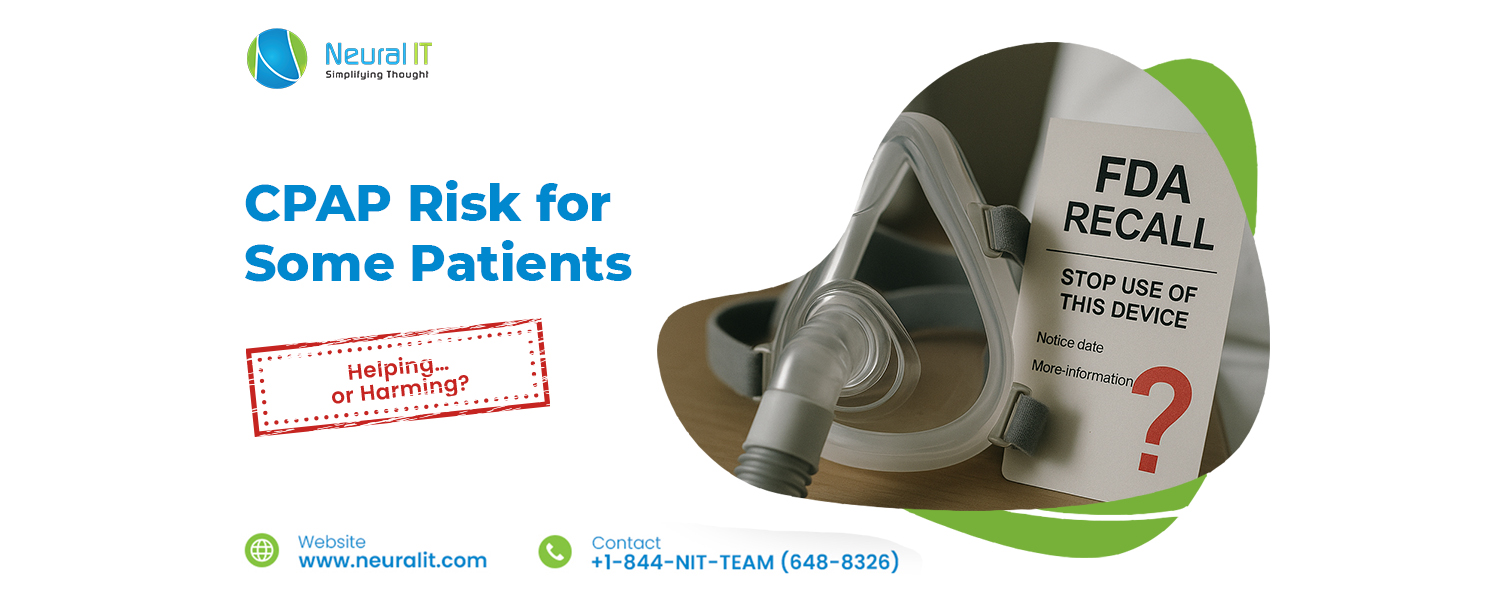Study Finds CPAP May Harm Low-Risk Sleep Apnea Patients
Study Finds CPAP May Harm Low-Risk Sleep Apnea Patients

Introduction
A new study has cast doubt on the long-standing belief that continuous positive airway pressure (CPAP) machines significantly reduce heart disease risk in individuals with sleep apnea.
Findings suggest that the devices may offer cardiovascular benefits only for a specific subset of patients, while potentially increasing risk for others. These results raise concerns about how frequently CPAP therapy is recommended, especially for those with mild or low-risk sleep apnea.
Key Findings Published in European Heart Journal
The research, published on August 5 in the European Heart Journal, indicates that CPAP therapy lowers cardiac risk for patients with severe markers of sleep apnea but has an opposite effect on patients with low-risk indicators. This nuanced outcome highlights the importance of targeted treatment approaches rather than broad recommendations for all sleep apnea patients.
What Are CPAP Machines and Why Are They Used?
CPAP machines deliver a continuous flow of air pressure through a mask to keep the airways open during sleep. This treatment has been widely prescribed for obstructive sleep apnea—a condition where breathing repeatedly stops and starts during sleep due to airway blockages. Common symptoms include loud snoring, gasping for breath, excessive daytime sleepiness, and poor concentration. If untreated, sleep apnea can lead to serious complications, including high blood pressure, stroke, and other cardiovascular problems.
Study Design and Participant Details
Researchers from Brigham and Women’s Hospital and Harvard Medical School analyzed data from three randomized clinical trials involving 3,500 sleep apnea patients. The goal was to evaluate whether CPAP treatment reduces the risk of cardiovascular or cerebrovascular events compared to usual care. Surprisingly, the overall rate of such events was identical in both groups—16%—indicating no significant advantage to CPAP use among the general sleep apnea population.
Different Outcomes for High-Risk and Low-Risk Patients
The results became more complex when researchers divided patients into high-risk and low-risk categories based on sleep apnea severity markers.
· High-risk patients, defined as those experiencing significant oxygen desaturation or spikes in heart rate during apnea episodes, saw a 17% reduction in cardiovascular events when using CPAP.
· Low-risk patients, who did not exhibit these severe markers, experienced a 22% increase in cardiovascular events when treated with CPAP.
This unexpected finding suggests that CPAP therapy may be harmful to certain patients rather than universally beneficial.
Further Stratification by Symptoms
Researchers also assessed outcomes based on daytime symptoms, such as fatigue or lack of sleepiness. Among asymptomatic high-risk patients, the use of CPAP reduced heart-related risks by 24%. However, non-sleepy, low-risk patients saw their cardiovascular risk rise by 30% with CPAP use. These patterns underscore the complexity of prescribing CPAP devices without personalized assessment.
Why Might CPAP Increase Risks in Low-Risk Patients?
While the exact reasons remain unclear, researchers proposed a few possible explanations. One theory is that CPAP could overstretch the lungs in low-risk patients, putting strain on the cardiovascular system. Another possibility is that CPAP disrupts sleep patterns in these patients, indirectly harming heart health. Additional studies are needed to confirm these hypotheses.
Implications for Clinical Practice
The study concludes that physicians should avoid a one-size-fits-all approach to CPAP prescriptions. Instead, doctors should assess each patient individually, considering their phenotype and risk level before recommending the device. The findings indicate that CPAP therapy should primarily be reserved for high-risk patients who are most likely to benefit from treatment.
CPAP Safety Concerns and Past Recalls
This is not the first time CPAP machines have been linked to health risks. Philips Respironics has faced multiple recalls in recent years, including a major recall due to defective sound abatement foam. The foam issue led to therapy interruptions and caused severe health problems, resulting in more than 350 reported deaths, thousands of injuries, and over 100,000 medical device reports. These incidents culminated in a $1.1 billion settlement to resolve legal claims against the manufacturer.
Earlier this month, Philips issued another Class I recall—the most serious type—for certain BiPAP ventilator machines, which are used for treating sleep apnea but differ from CPAP devices. The recall cited alarm malfunctions that caused interrupted therapy, leading to low blood oxygen levels, elevated carbon dioxide, respiratory failure, and even death. At least eight fatalities have been reported in connection with this latest recall.
The Bottom Line
The new findings challenge long-held assumptions about CPAP therapy, suggesting that while it can help high-risk sleep apnea patients, it may harm those with milder forms of the condition. Combined with the history of safety concerns and recalls, these results reinforce the need for personalized treatment decisions and closer monitoring of device performance.




